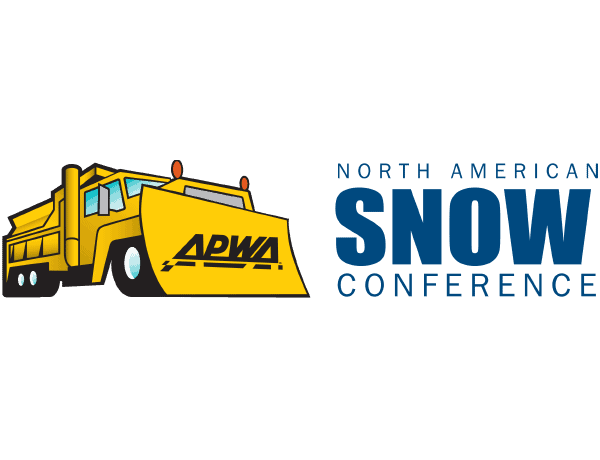Member
Each community seems to have that one spot that always has crashes when winter weather arrives, or bridge that behaves differently than all the others at night. Why is that?…
Read MoreUsing a drone is the fastest available way to examine a project area or construction site and provides real-time data gathering and image generation. Using drones through each stage of…
Read MoreManagers of public spaces need to share best practices and network to stay current with trends and technological updates for continuous improvement in operational efficiencies and sustainability efforts. Designed to…
Read MoreThis session will inform participants regarding options and opportunities available to initiate a liquids operation into their current winter maintenance plan. Starting from the ground up is somewhat difficult without some tips and understanding of where one might go or end up when looking at implementing liquids into an operation. Class subject matter will consist of brine production, application equipment, calibration, record keeping, and outside information or sources utilized to assist in implementing a liquids program. Further information will be provided on the growth of the City of Waconia’s agency liquids operation to blending and on-demand liquid production and blending.
Read MoreThroughout our careers most of us change positions and roles numerous times. Adapting to new challenges, responsibilities, and authority are keys to successfully navigating one’s career. Progressing from technical positions into leadership roles can be the most challenging change of all. As Rick Rigsby states, leadership is about combining technical knowledge and wisdom to grow your impact. During our careers, we must learn from those who came before us and then be prepared to pass on our wisdom to the next generation. This presentation will focus on two long-time public works professionals who have greatly impacted one another’s careers. Learn how a now retired Baby Boomer and a Generation X Leader supported, collaborated, mentored and then reverse-mentored each other to help grow their influence in the public works field.
Read MoreTypical planning approaches for municipal stormwater projects often include gathering significant field data, developing complex models, and extensive documentation regarding existing conditions and potential solutions. This presentation will explore a recent pilot project executed by Charlotte-Mecklenburg Storm Water Services that employed available geographic information system (GIS) data and abridged the modeling and reporting process. The results of the effort were provided in a decision dashboard to assist stakeholders in identifying and prioritizing projects. It will also outline the advantages and pitfalls of this approach and highlight a few of the design projects developed from this study.
Read MoreThe City of Raleigh in North Carolina has recently undertaken an innovative implementation of a Pavement Management System using automated data collection (ADC) to identify crack deterioration for input to the pavement management system (PMS). Unlike the traditional methods, the City is adopting a new methodology to measure crack density calculated as crack length in linear feet per square yard for use in the pavement management system. More specifically, these crack densities are measured for short data collection segments (approximately six feet) per transverse zone (as defined in AASHTO R-85). This project helped in the development of the new ASTM Standard Practice for Generating Pavement Surface Cracking Indices from Digital Images (E3303-21), which will aid others in future ADC initiatives. The presentation will describe this new and forward-thinking data collection and subsequent pavement management methodology so that other interested agencies can look into adopting ADC to obtain more accurate and repeatable data in the future.
Read MoreThis session will focus on what it takes to be a successful leader in an organization. The speaker will focus on his 32-year career in public works and how he had to evolve and change to become an effective leader. While starting out as more of a micro-manager, as his organization evolved, he discovered the attributes associated with delegating responsibility to the stakeholders who perform the work. The speaker will talk about his experiences with implementing a city-wide Quality Initiative, an IDEAS program, succession planning, and other employee-based opportunities.
Read MoreMentorship can serve as a gateway to exciting new opportunities for the mentee and growth opportunities and career satisfaction to the mentor. A successful mentorship relationship can provide succession planning to create resilient organizations in the workplace and APWA. A mentor and mentee relationship should be a personal choice by all parties as each drastically varies depending on one’s needs. Bringing these two groups together is key to getting started. This is sometimes difficult as the perfect pair can be from different organizations, locations, ages, job backgrounds, and experiences. This program will look at how to create your own mentorship program, different mentorship styles to create successful relationships, and provide the opportunity for attendees to establish connections to find their own mentor or mentee. Be ready to find your mentor/mentee match and use what you’ve learned to create a lasting, successful mentorship relationship.
Read MoreCritical infrastructure owners must consider how their supervisory control and acquisition systems (SCADA) and physical asset systems are resilient by design in the face of cyber incidents. The escalation of control system-based cyber incidents coupled with the natural evolution of engineering practices has inadvertently removed cyber-physical protections from our water and wastewater systems resulting in an increased cyber risk to our assets, people, and operations. Developed by Idaho National Laboratory (INL), consequence-driven, cyber-informed engineering (CCE) is an emerging methodology specifically designed to improve the security and cyber-physical resilience of critical infrastructure control systems. West Yost staff have been working with utilities across the U.S. to conduct CCE-related assessments, emergency preparedness exercises, and improvement engineering practices. This presentation will provide attendees with ideas and knowledge to pursue CCE within their organizations.
Read More